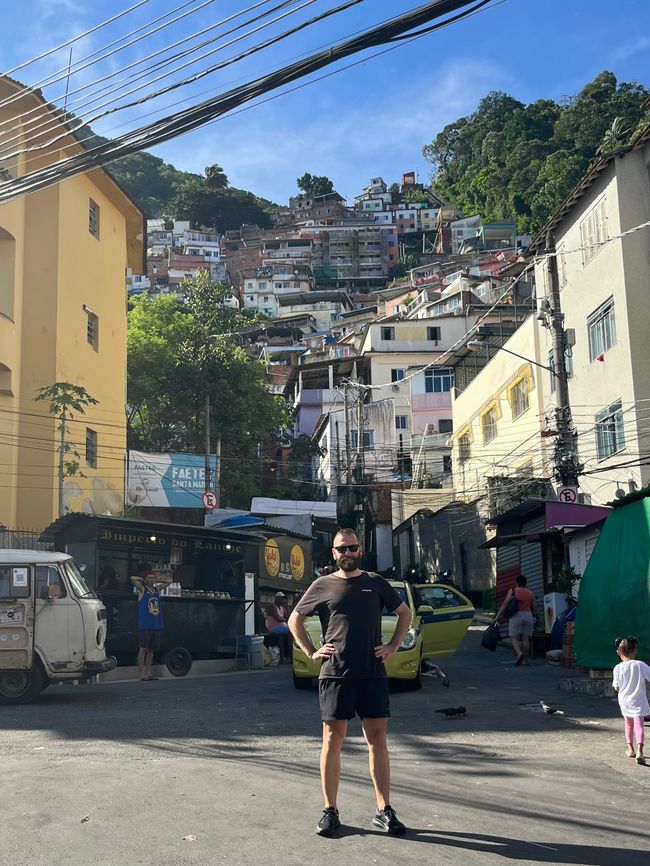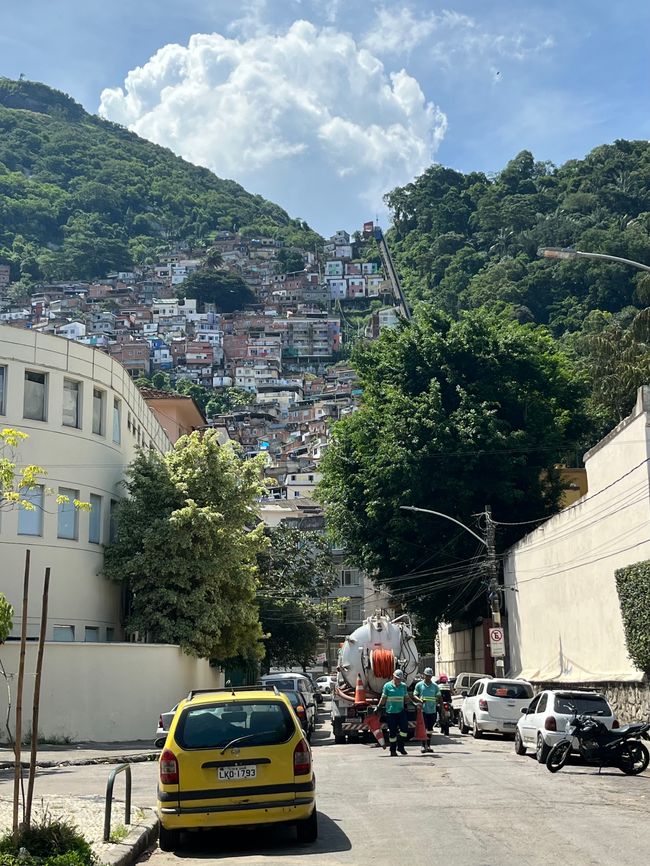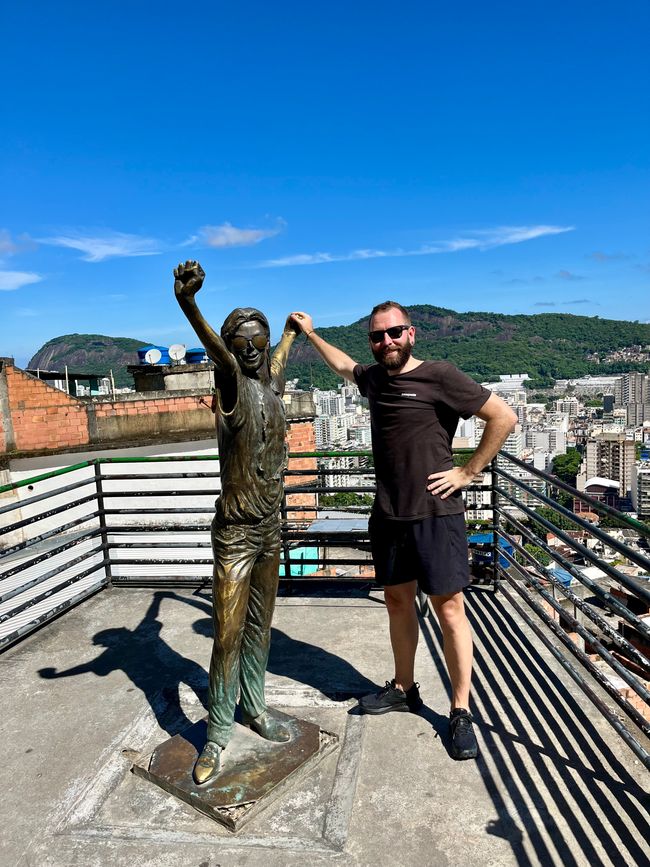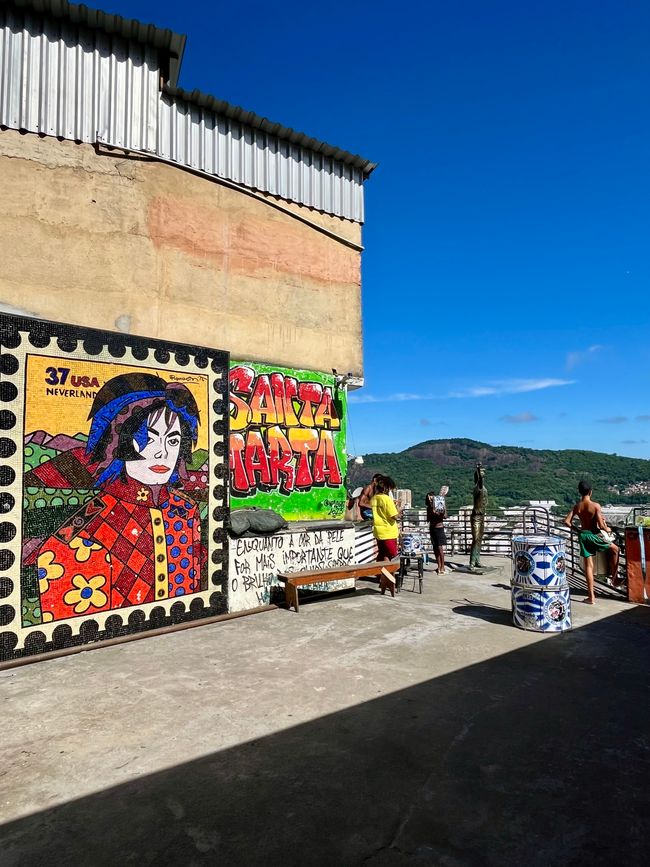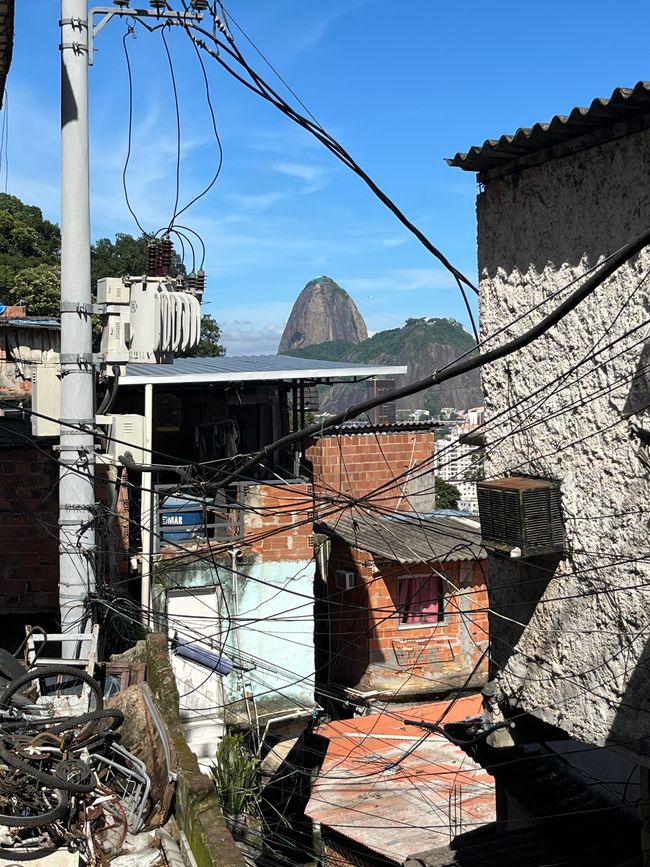
ausderfernebetrachtet
vakantio.de/geschichtenvonunterwegs
Favela Santa Marta
Naipablaak: 13.03.2024
Agsubscribe iti Newsletter
Bright sunshine, 32° and only a few isolated clouds in the sky.
Perfect weather to let the sun beat down on your still far too white Central European body on the beaches of Rio with thousands upon thousands of like-minded people. However, this kind of pastime wasn't to be today, as we decided to visit Santa Marta, which, with gradients of almost 40 degrees, is considered the steepest of the city's estimated 700 favelas. In order to make it easier for residents to transport goods and climb to the upper parts of the settlement, a cable car was built a few years ago, which connects the foot of Morro Donna Marta with a total of 5 stops to the houses at the very top of the hill .
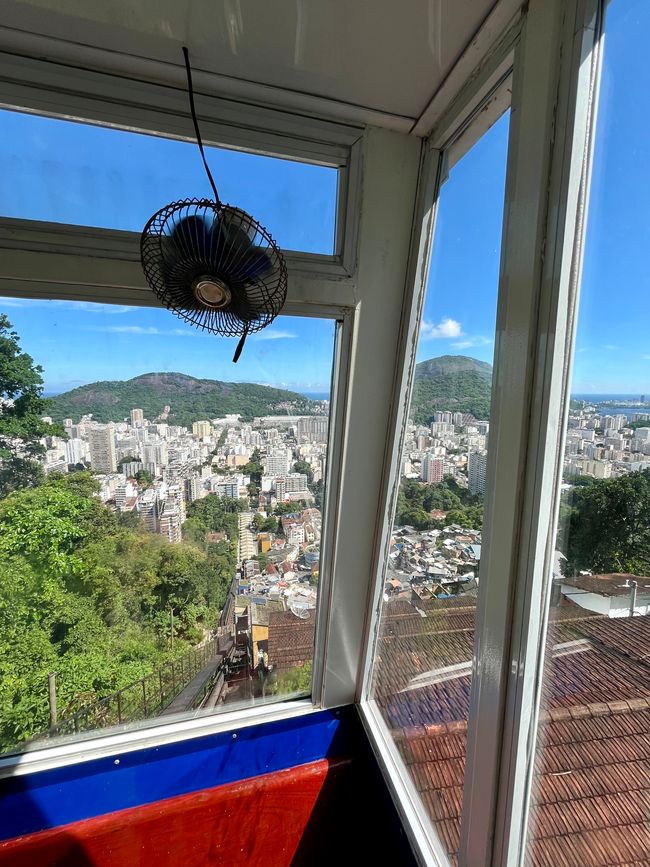
The train moves up at a moderate pace and reveals a breathtaking view over the south of the metropolis, constantly monitored by the Cristo Redentor, the world-famous landmark of Rio de Janeiro, which towers majestically on the 710 m high Corcovada above the city.
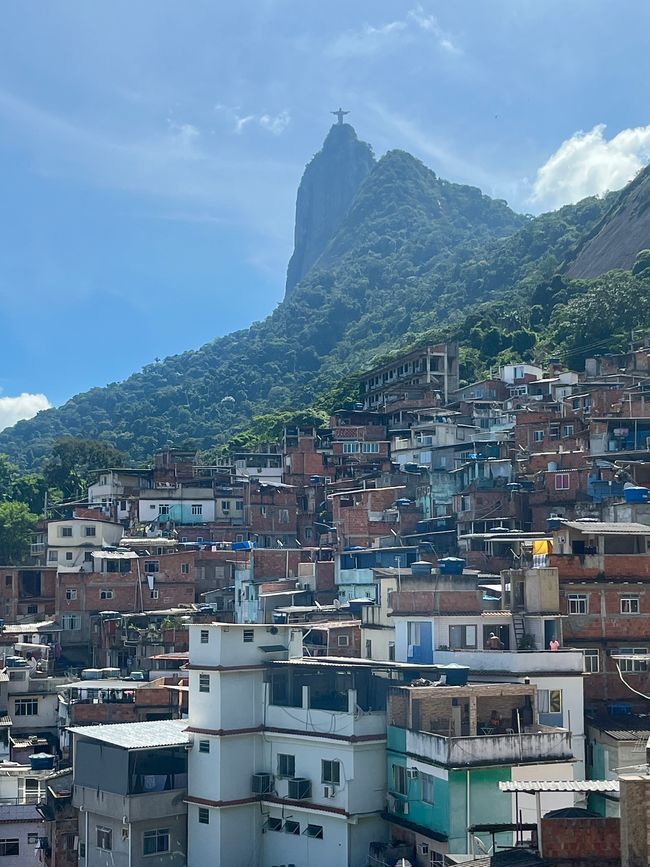
When we arrived at the middle station, we met several guys sitting between the brick houses with automatic rifles and engaging in all sorts of activities: smoking weed, playing dominoes and counting an incredible amount of money. One of the figures could have starred in any Hollywood blockbuster with his flawless and incredibly muscular figure, but apparently preferred the tranquil life in the favela to the jet set in LA and delighted the eyes of the astonished spectators by repeatedly using his automatic weapon with practice. However, the absurdity of the scene turned out to be very one-sided, because the self-appointed protectors of the favela didn't even look at us. A small group of tourists crossed our path and my questions to the guide as to whether the gentlemen were actually the favela's protection officers or whether they were criminals were both answered with "yes".
We decided to take the cable car up further and make our way back from the top through the narrow streets to the foot of the settlement. What is particularly helpful here is the steep gradient, which serves as a rough guide downwards and without which you would probably get hopelessly lost in the tangle of paths and paths. About halfway there is the Espaco Michael Jackson, which has a statue commemorating the King of Pop and his video for “They don't care about us” recorded here in the favela. Even if you probably don't want to swap places with the residents of the favela, at least the view of Ipanema, Copacapada and the Sugarloaf Mountain is enviable.
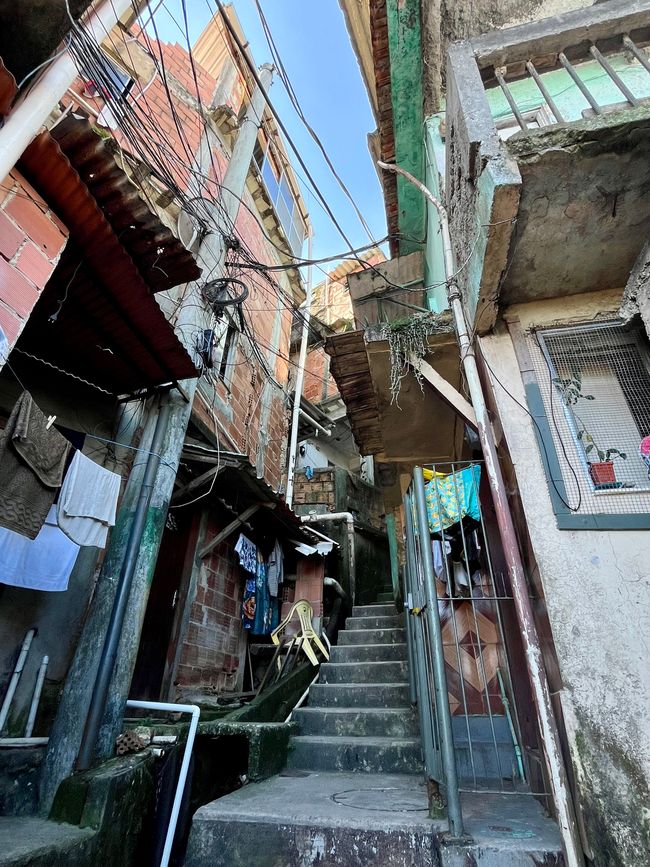
Passing partly intertwined brick and wooden buildings, wildly cobbled together constructions, torrents full of feces and waste water and shops for everyday needs, one was amazed at the creativity of the residents and also at the art of making the best possible use of every square meter of the neighborhood, even if we were Central European here Standards for assessing chaos seem rather inappropriate. Passing other heavily armed figures and finally reaching the bottom again, the view wanders back from the bottom of the settlement up to the slopes and is once again amazed at how this self-managed construct works quite well despite all the adverse circumstances. You just shouldn't be on the "wrong" side of the law here, because any control function of the state organs, police, etc. is not tolerated, which is another reason for the heavy armament in the favela, as I explained to myself after the tour read.
Agsubscribe iti Newsletter
Sungbat
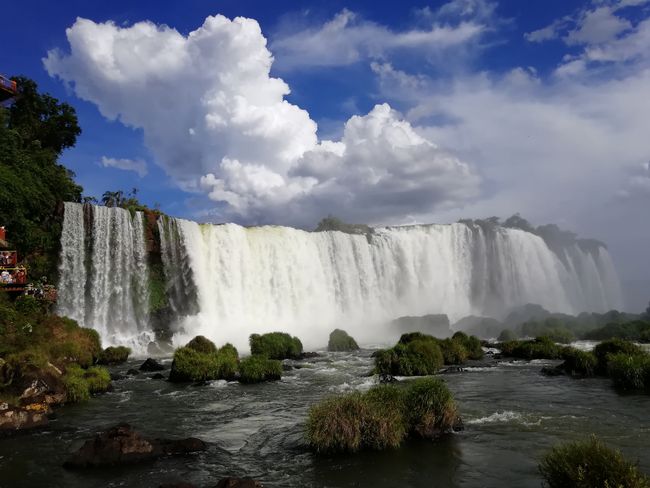
Dagiti report ti panagbiahe Brasil

